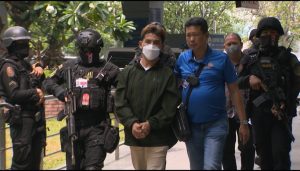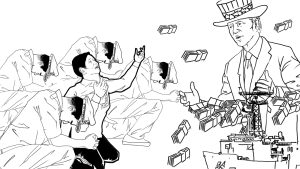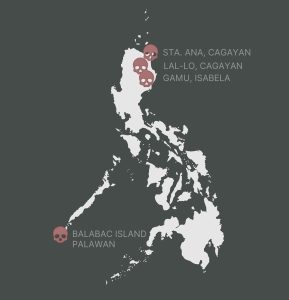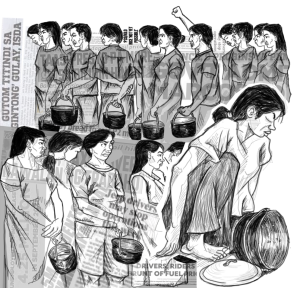US war games are detrimental and perilous to Filipinos

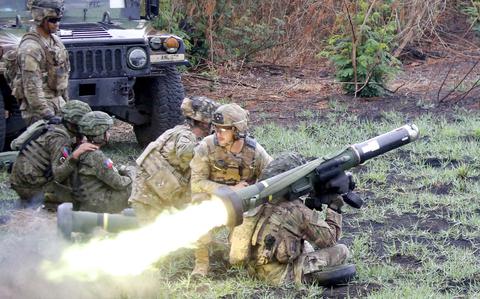
National-democratic organizations staged coordinated protest actions in and outside the country on the first days of the 38th US-PH Balikatan Exercises on April 11. They criticized the US for using the Philippines to provoke war against its imperialist rival China.
In Metro Manila, protesters led by the Bagong Alyansang Makabayan staged a picket at Camp Aguinaldo, Quezon City on April 11. A similar protest in New York was mounted on the same day.
Members of the League of Filipino Students carried out a lightning rally at dawn in front of the US Embassy in Manila. Two rallyists were arrested and charged with public disturbance. Four paralegals who assisted the students were also arrested by the police but were released later. In support, various youth groups protested before the Philippine General Hospital and Far Eastern University. The youth also took action at the University of the Philippines-Visayas.
According to the protesters, there is no truth to claims of the Marcos regime, the AFP and the US that these war games will benefit and help Filipinos. As in the past, the purpose of the Balikatan is to prepare for war and project US imperialist power. It tramples on the country’s sovereignty and puts the lives and livelihoods of Filipinos in danger.
In Nueva Ecija, residents condemned American and Filipino troops for the live-fire exercises of cannons and bombardments in Fort Magsaysay. Most of the bombings were carried out at night, at 11 o’clock, which shocked and disturbed the barriofolks, especially sleeping children. The live-fire exercises are part of the training where soldiers use real ammunition and bombs. In addition to causing trauma to civilians, it also drives away stray widlife in adjacent forests and leaves toxic material that are harmful to the environment.
Gabriela reported that numerous farmers avoid going out of their communities for fear of being hit during the training. This affects their livelihood. Small fishermen likewise suffer as they are forbidden to fish in at least five towns in Zambales to give way to the Balikatan. The ban was imposed during the peak of the fishing season. The Pamalakaya condemned the Balikatan spokesperson’s statement that the ban was a “minor inconvenience” in exchange for “national security.” The Pamalakaya insisted that US troops leave the area of Filipino fishermen in peace.
The Balikatan will last for 18 days. It involves 12,000 American troops, 5,400 Filipino troops and 111 Australian troops. In addition to live-fire exercises at Fort Magsaysay, participants will also sink a ship in the Zambales waters, 185 kilometers from the Panatag Shoal, the traditional fishing ground of Chinese and Filipinos. The US will use such weapons as the HIMARS (High-Mobility Artillery Rocket System) and rockets and bombs to be launched by US and Philippine war aircraft. The US will also “train” Filipino soldiers to use the Patriot Missile, Javelin anti-tank weapons and other weapons now being used in the US proxy war against Russia in Ukraine.
Balikatan was first conducted in 2002 under the veil of “anti-terrorism war.”


